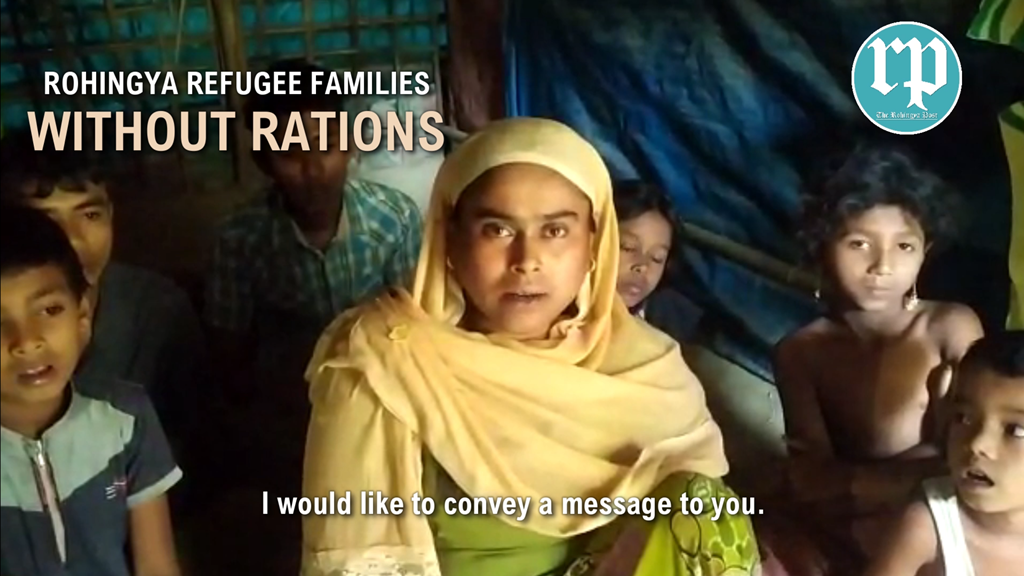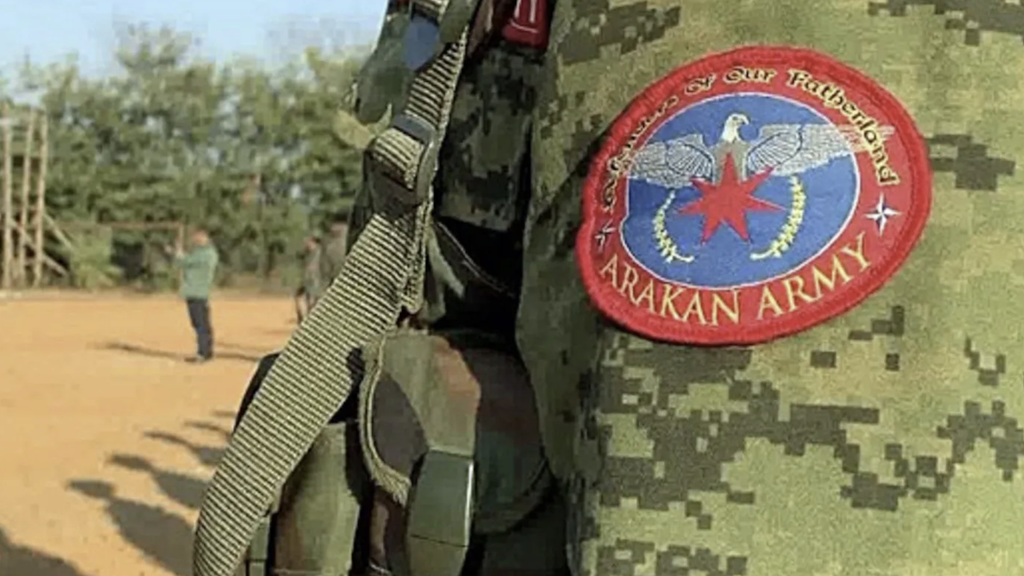
30 Rohingya Refugee Families Without Rations Amid COVID-19 Lockdown in Bangladesh
- 03/04/2020
- 1
By Mohammed Rafique, The Rohingya Post
With the enforcement of social distancing protocols and lockdown across Bangladesh, some Rohingya in the world’s largest refugee camp battle to keep their families alive without humanitarian assistance
Sitting in a refugee shelter built with mud, bamboo and tarpaulin, Kushida Begum appealed the world to help her families and others who are facing hardship to feed their children.
Kushida’s 6-member family and other 30 Rohingya families in Block-A, Camp-1, Modusara, Kutupalong refugee camp are without any rations for nearly three months.
“Now we don’t have anything to eat. We are six in the family. There are 30 families in this camp. Like those families, we don’t receive rations for three months,” worryingly said Kushida to The Rohingya Post.
She explained the reason behind without the rations. She stated that when Rohingya refugees were registered for FoodCard, a WFP’s (World Food Programme) electronic food card system, these families were either left out either with human errors or technical issues.
FoodCard requires each eligible refugee to provide biometric fingerprints under registration. The card replaces previous food distribution system that provided families with a basic food basket.
Kushida’s family previously received rations. However, her family rations allocation is not found when she approached the WFP office.
When she goes to the office of CIC (Camp-in-charge), it sends her back to the WFP office which then sends her to the FoodCard office.
For three months, she went to neighbours in Modusara Kutupalong Refugee camp begging for food for her children.
Now it has become impossible as Bangladesh declares nationwide lockdown including the refugee camp where Rohingya refugees are barred to leave their shelters.
Kushida and other 30 families without humanitarian assistance, rely on going outside to beg or work in low-skilled, low-paid jobs inside the camp.
The COVID-19 pandemic makes fear grows inside her. “We are afraid to go out because of this outbreak. But we also cannot avoid going out because we don’t have anything to eat,” she said.
She also keeps her children safe from contracting the virus by washing their hands frequently and preventing them to go outside to play.
“We fled Burma (Myanmar) to save our lives. Since we heard about the outbreak of the disease here, we are trying to save from the disease. If the disease spreads in the refugee camps, many people will die,” she warns about the potentially catastrophic outcomes to the refugees.
Kushida and the 30 households without rations are now battling “to keep children alive” during the lockdown as they can neither go out seek for food nor have FoodCard to receive rations.
“Our children are without food. We cannot eat or move,” she said.
Kushida appeals to the office of WFP and other NGOs, and “holds the hope of help”.







One thought on “30 Rohingya Refugee Families Without Rations Amid COVID-19 Lockdown in Bangladesh”